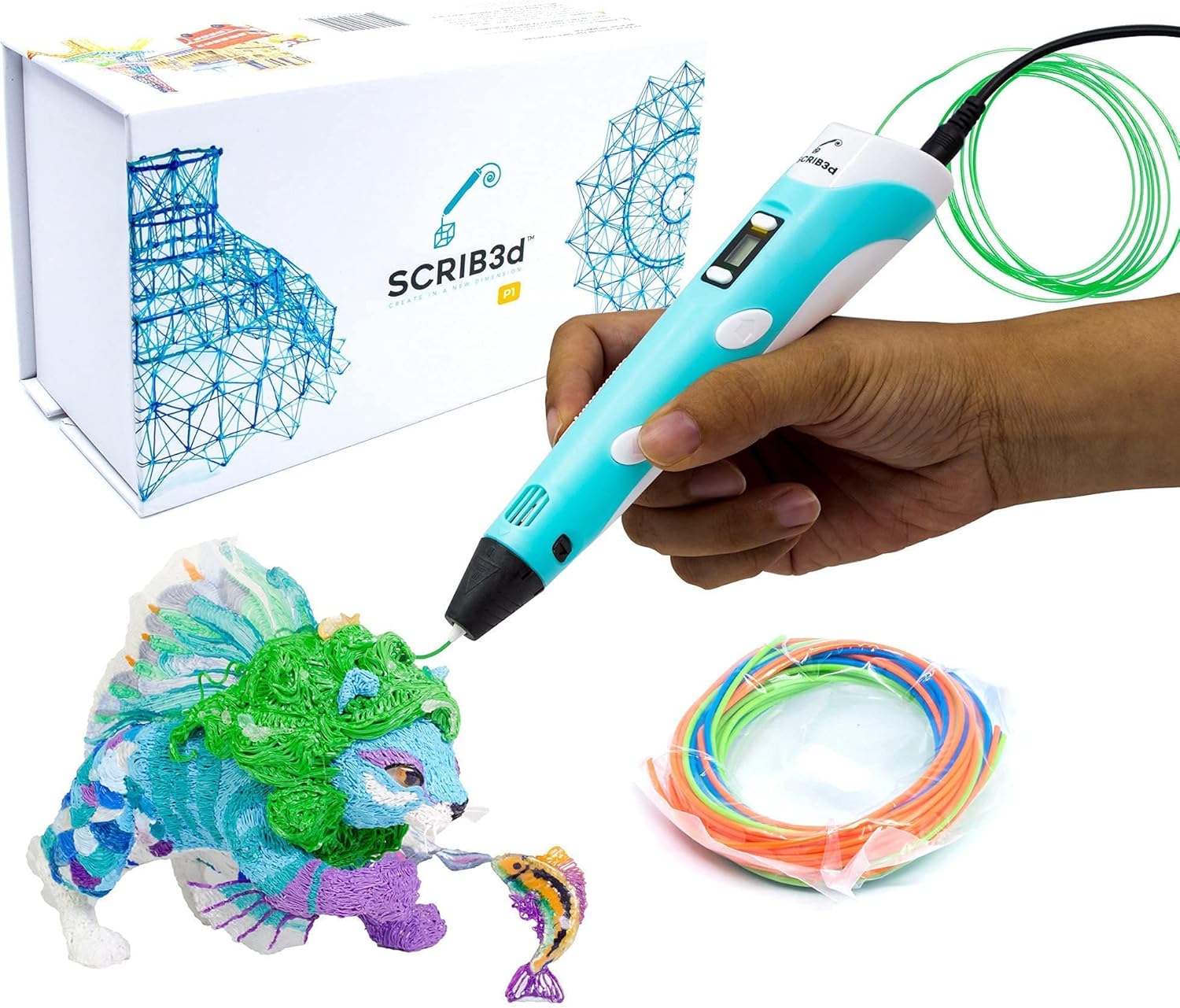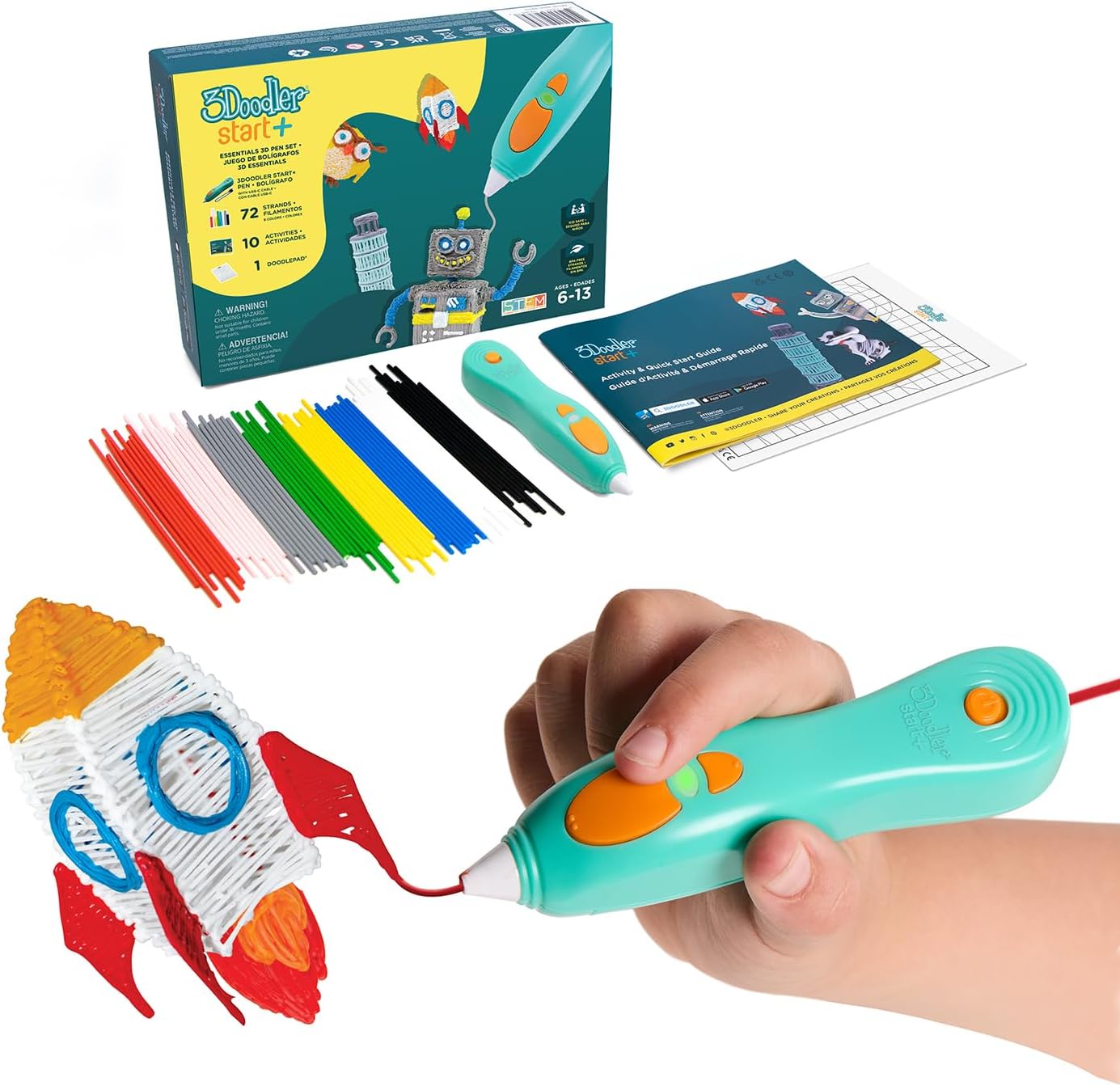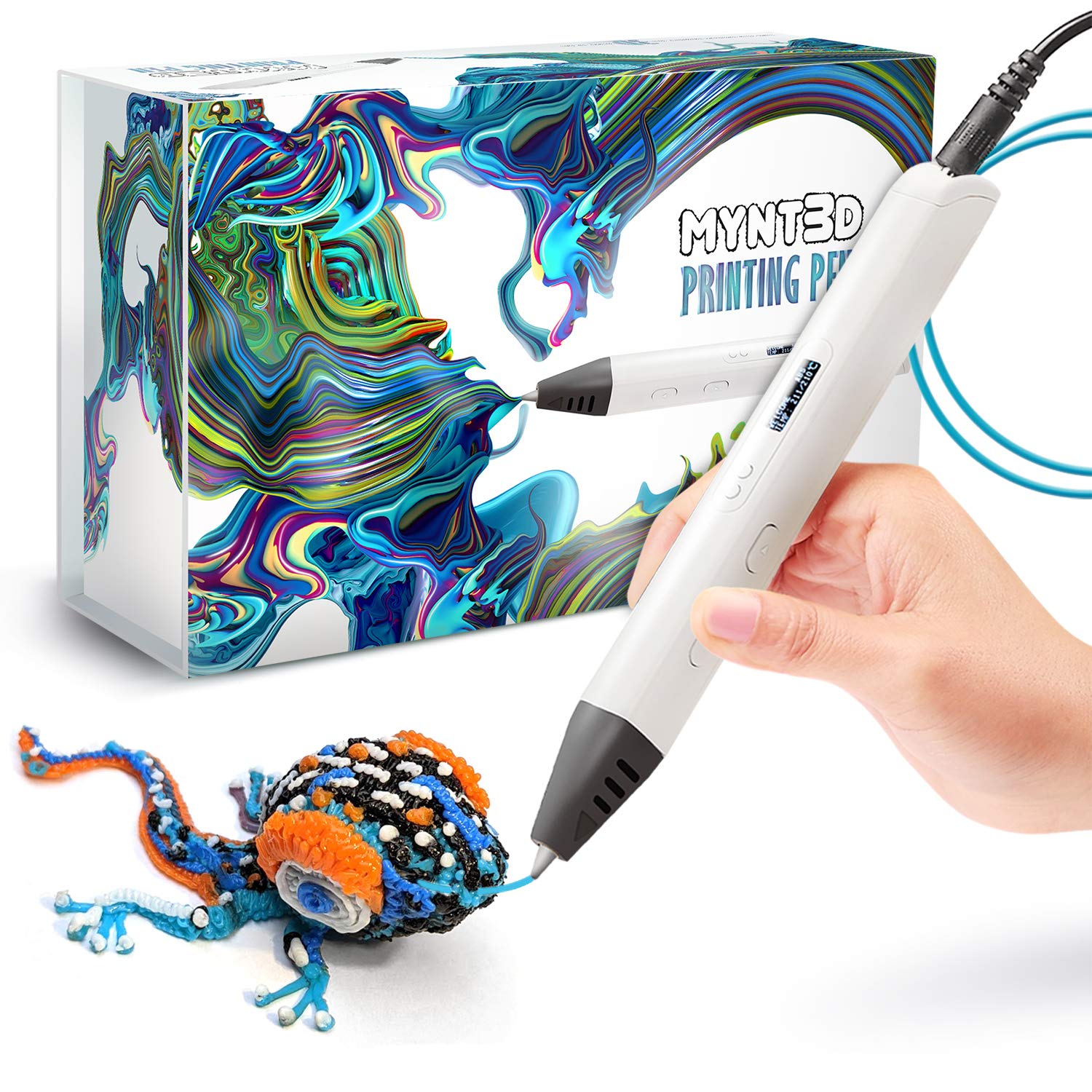Here’s an overview of the Best 3d Pens that we’ll explore today:
3D pens have moved beyond novelty to become practical tools for education, rapid prototyping, and craftwork. The category spans budget-friendly entry devices and feature-rich models aimed at serious hobbyists and professionals. In this comparison, I test five popular models across a price range of $34.99 to $59.99 to evaluate heat stability, feed control, ease of use, safety features, filament compatibility, and overall project viability. My methodology combines hands-on use with objective metrics: preheat time, nozzle temperature range, feed responsiveness, odor and smoke levels during operation, and real-world tasks such as tracing, detailing, and light construction. Each product is assessed for beginner friendliness, versatility, and value at its price tier. The lineup includes SCRIB3D’s entry P1, SCRIB3D Advanced, 3Doodler Start+ Essentials, MYNT3D Professional, and MYNT3D Super, covering both educational and creative use cases.
1. SCRIB3D P1 3D Printing Pen with Display – Includes 3D Pen
- Brand: SCRIB3D
- Manufacturer: SCRIB3D
Overview: The SCRIB3D P1 is positioned as a versatile, beginner-friendly 3D pen with stepless speed control and a temperature range suitable for PLA and ABS. It ships with 30 feet of PLA filament across three colors, a stencil book, a project guide, and a charger. The device features a ceramic nozzle, a 2-minute warm-up, and an auto-sleep function to mitigate overheating, alongside a broad temperature spectrum (PLA 160-210°C, ABS 210-235°C). Prospective buyers get a simple onboarding experience and a compact form factor that keeps it approachable for families and classrooms alike.
Performance-wise, the P1 excels at low-to-moderate detail work with smooth, stepless speed adjustment enabling precise slow draws or quicker infill. The lack of a fixed preset speed reduces learning curve, though it may require more micro-tuning for advanced users. The included stencil guide adds tangible value for beginners, helping translate 2D concepts into 3D forms. In practice, the P1 handles decorative accents, light repairs, and model embellishments well, while occasional filament jams or filament retractions can occur if users feed filament at inconsistent speeds or if the nozzle experiences heat creep during extended sessions.
Pros
- Stepless speed control enables fine-grained flow management
- Affordable entry price with a complete starter kit (PLA, stencil book, guide)
- Broad temperature range supports PLA and ABS
- Ceramic nozzle and anti-clogging considerations improve reliability
- 2-minute warm-up and auto-sleep for safety
Cons
- ABS printing can be finicky due to heat requirements
- No built-in LCD display to monitor temperature mid-task
- Jams can occur with aggressive feeding or rapid retractions
2. 3Doodler Start+ Essentials 3D Pen Set for Kids
- Brand: 3Doodler
- Manufacturer: 3Doodler
Overview: The Start+ Essentials set is the kid-focused iteration of the three-dimensional drawing brand, marketed as the only child-safe 3D printing pen. It uses Start plastic filaments and deliberately excludes hot parts, making it blush-safe for ages 6+. The kit includes a complete drawing surface, multiple plastics (72 strands), a USB-C cable, an activity guide, and an updated design with improved ergonomics, faster charging, and more stencils. It emphasizes screen-free learning and STEM skill development, making it a compelling choice for families and early learners.
Performance-wise, the Start+ aims for user-friendliness over aggressive capability. It charges faster (50% quicker than prior versions) and ships with an expanded color/filament assortment and an enhanced safety stand-by mode. The absence of hot parts reduces burn risk but also limits the ability to create complex, fast-flowed 3D structures compared to standard heated pens. The Start+ excels at basic shapes, lettering, and simple 3D doodling, making it ideal for supervised children’s activities and age-appropriate projects.
Pros
- Child-safe design with no hot parts
- 50% faster charging and expanded filament assortment
- Wide STEM activity potential with educational guides
- Ergonomic improvements and safety features
- Includes DoodlePad/Doodlemat and activity resources
Cons
- Limited high-temperature capabilities limit advanced PLA/ABS use
- No detailed temperature control for fine-tuning
- Filament compatibility restricted to Start plastics
3. MYNT3D Professional Printing 3D Pen with OLED Display
- Brand: MYNT3D
- Manufacturer: MYNT3D
Overview: The MYNT3D Professional 3D Pen targets enthusiasts who want precise control, featuring an OLED display, adjustable temperature from 140 to 230°C in 1-degree increments, and an adjustable feed mechanism. The kit includes three colors of PLA, an AC adapter, and a slim ergonomic pen with a 1-year warranty. The display allows real-time monitoring of temperature, aiding consistency when applying different materials or achieving specific effects.
In practice, the MYNT3D Professional delivers refined control for fine details and multi-material effects. The 1-degree temperature granularity helps stabilize extrusion for delicate outlines, while the adjustable feed contributes to smoother lines and reduced stringing. Its performance shines in technical or craft projects requiring precision—think architectural minis, jewelry components, or intricate stencil work. The main trade-off is a slightly higher price point and a learning curve associated with mastering temperature and feed optimization for optimal results.
Pros
- OLED display for real-time temperature monitoring
- Fine temperature control (140-230°C) in 1-degree steps
- Adjustable feed for precise flow management
- Ergonomic, slim design with reliable performance
- 1-year warranty
Cons
- Higher learning curve for beginners
- Requires user to manage heat for different materials
- Pricier than basic entry pens
4. SCRIB3D Advanced 3D Printing Pen with 20 Feet of Filament
- Brand: SCRIB3D
- Manufacturer: SCRIB3D
Overview: The SCRIB3D Advanced pen is positioned as a feature-rich option that emphasizes a larger LCD display, variable speed control with 8 speed settings, and a more premium ergonomics package. It ships with 15 meters of PLA, a power adapter, stencil book, and project guide. The device highlights a more professional approach to 3D drawing with enhanced control for line thickness and temperature supervision.
Performance-wise, the Advanced pen delivers consistent extrusion with more precise speed modulation, better suited for more ambitious projects, small-scale prototyping, and craft builds that demand steadier throughput. The larger LCD and improved loading/unloading controls help users maintain stability during longer sessions. The trade-offs include a higher price versus the P1 and the potential overkill for casual doodlers who won’t leverage the advanced speed options or the extended LCD feedback in everyday tasks.
Pros
- Large LCD display for real-time status
- Eight-speed options provide refined control
- Ergonomic, soft-touch housing for comfort during long sessions
- Includes stencil book and project guide for guided learning
- Moderate filament length supports longer sessions
Cons
- More expensive than entry models
- Only 15 meters of PLA included (less than some competitors)
- May be bulkier for children or beginners
5. MYNT3D Super 3D Pen
- Brand: MYNT3D
- Manufacturer: MYNT3D
Overview: The MYNT3D Super 3D Pen is a budget-friendly option that supports both ABS and PLA via a stepless speed slider for flow control. It emphasizes durability with an ultrasonic-sealed nozzle and includes three colors of PLA, a power adapter, and a slim ergonomic pen form. This model targets users who want a versatile tool at a lower price point while maintaining reliability.
Performance-wise, the Super pen’s strength lies in its reliability and flexible material compatibility, enabling a broader range of projects—from novelty doodles to functional prototypes. The ultrasonic sealed nozzle is designed to resist clogging and extends longevity, which is valuable for users who experiment with different plastics. The main caveat is that, despite flexibility, there is still a learning curve around temperature settings for ABS vs PLA and ensuring consistent cold-start behavior on longer sequences.
Pros
- Stepless speed slider for smooth flow control
- Ultrasonic sealed nozzle offers improved durability and clog resistance
- Compatible with both ABS and PLA
- Low price with reliable performance
- Includes three PLA colors and adapter
Cons
- Requires understanding of material-specific temperature needs
- No integrated display to monitor temperature in real time
- May be less feature-rich than higher-end MYNT3D models
Frequently Asked Questions
We’ve compiled answers to the most common questions about 3d penss to help you make an informed decision.
Conclusion
.
.
Final thoughts here.




